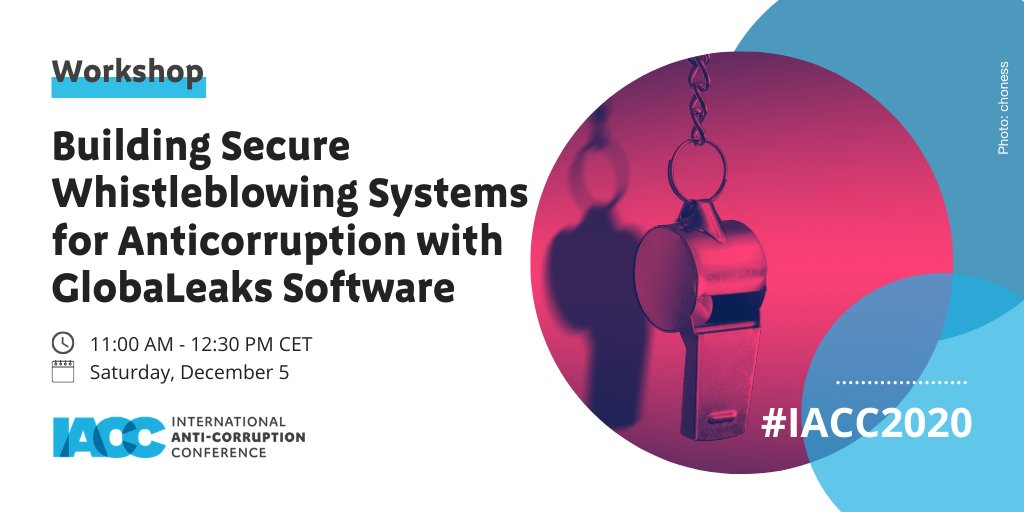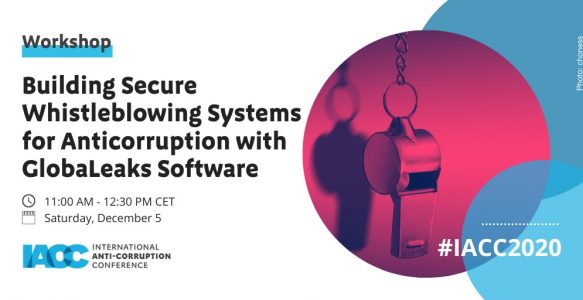This December more than 500 speakers, drawn from civil society, governments, academia, and business gathered together for the 19th International Anti-Corruption Conference (IACC), under the theme “Designing 2030: Truth, Trust and Transparency”.
Due to the COVID-19 pandemic, the world’s largest anti-corruption forum was held online for the first time, allowing thousands of participants to join the discussion on the increasing challenges posed by corruption and the devastating consequences of the current global crisis, which are stressing more than ever the importance of fostering transparency, integrity and accountability.
With the aim of improving the knowledge about ICT-driven anti-corruption initiatives, and among these the EAT project, it was hosted the workshop “Building Secure Whistleblowing Systems for Anticorruption with GlobaLeaks Software”.
Even though it is unquestionable the power of anonymous digital whistleblowing in allowing more and more citizens to speak truth to power, very often the channels implemented to receive reports on corruption cases do not allow to receive useful information in a safe way for both the reporting person and the organization itself, resulting in a lack of protection of the identity of the whistleblower as well as of the information exchanged.
To cope with this, the Italian NGO Hermes Centre for Transparency and Digital Human Rights developed the free and open-source whistleblowing software named GlobaLeaks, which enables the creation of secure whistleblowing projects like EAT.
Since 2011 it has been used worldwide by more than 2000 media, NGOs, and companies to create web-based “dropboxes” or contact pages that whistleblowers can access anonymously through the Tor Browser to report and share evidence of wrongdoings.

